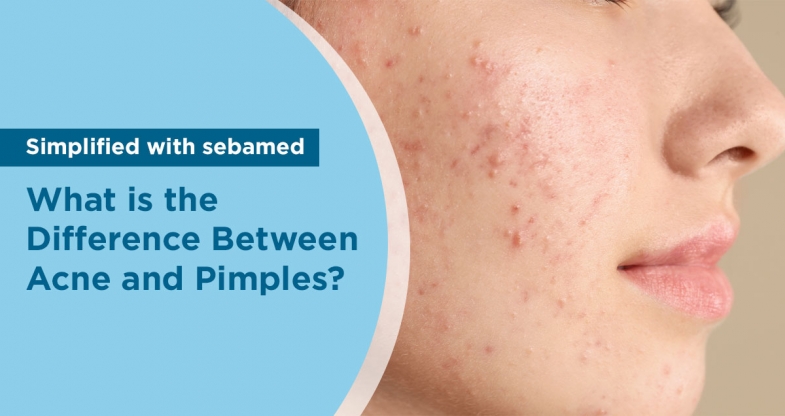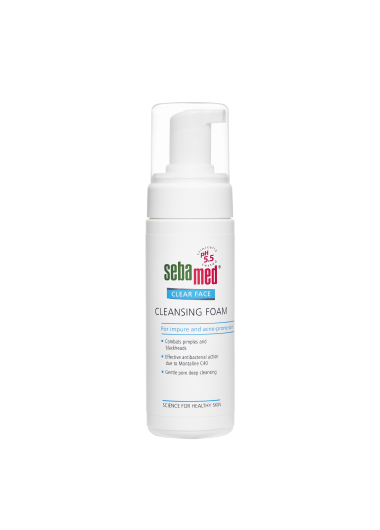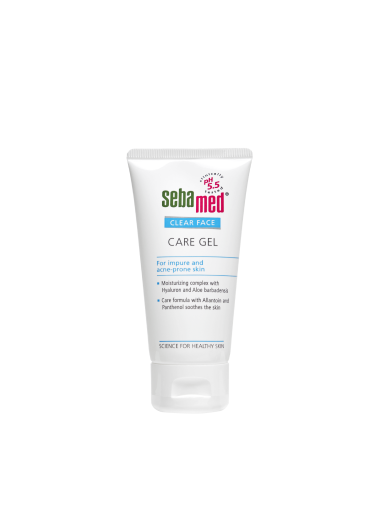What is the Difference Between Acne and Pimples?
by Sebamed | Aug 17, 2023

Everybody uses acne and pimples interchangeably in their day-to-day lives. But are they the same? Absolutely no. We are unaware of the underlying difference between acne and pimples which keeps us away from the actual science and the effective ways to prevent them. However, they both severely impact the self-esteem and mental health of women. According to a study, a major chunk of women have admitted that they feel unattractive due to acne and pimples. Through this blog, we are going to prove these misconceptions wrong!
Index [hide]
Understanding Acne - What is Acne?
Acne is a common skin condition where your skin pores get clogged. These pore blockages produce blackheads, whiteheads, and other types of pimples, persistently. Acne impacts the hair follicles and oil glands present in the skin.
While acne has adverse effects on the lives of individuals, a proper treatment can improve your skin health. Before getting into the ways to treat acne, it is very important to know about their origination.
The pores present on the surface of your skin are linked to glands that produce an oily substance called sebum. These glands and pores are connected through a canal called a follicle, which also houses a fine hair that grows outwards. When sebum combines with dead skin cells, they create a blockage within the follicle. The presence of bacteria within this blockage triggers inflammation, resulting in the formation of red pimples associated with acne.

Almost every other woman has acne
Types of Acne
The different types of acne include -
- Whiteheads: These are small white bumps on your skin’s surface.
- Blackheads: They are caused due to the oxidation of dust buildup in the pores by air.
- Papules: These are easily treatable and managed ordinary-sized pimples.
- Pustules: These are swollen and enlarged pimples that generally require professional treatment.
- Nodules: These are bigger than papules but have a similar structure. They are implanted deeply in the skin and can be uncomfortable.
- Cysts: They are filled with pus and are usually painful. Cysts commonly cause scars.
Causes of Acne
There are certain things that can trigger the proliferation of acne and can even make them worse. Some of the reasons are -
- Hormonal changes such as puberty, pregnancy, irregular menstrual cycle and more.
- Squeezing existing pimples.
- Scrubbing your face too vigorously.
- Humidity.
- Oil-based haircare and skincare products.
- Bad lifestyle and food habits
Effects of Acne
Acne has a widespread occurrence in the lives of many individuals. While it can manifest during adulthood, it primarily affects teenagers and young adults undergoing hormonal transformations. Most adults find acne too frustrating. In fact, some of them continue to get acne till their 30s and 40s. Dermatologists have named it as ‘adult-onset acne’.
While often perceived as a cosmetic concern, acne holds significant implications for one's daily life. It can significantly impact self-esteem, confidence, social interactions and overall self-perception. Beyond being a mere skin condition, acne can profoundly influence one's holistic sense of self.
Simple DOs and DONTs for pH-erfect Acne care

Understanding Pimples - What are Pimples?
A pimple is a clogged pore on your skin that has become infected. It is one of the most common symptoms of acne. When a hair follicle becomes clogged, it forms a plug that blocks the pore, leading to the formation of a pimple. Depending on the severity, pimples can range from small, red bumps to larger, more painful lesions such as pustules or cysts. Your face, neck, back, chest and upper arms are most likely to develop a pimple.

When a pore is clogged, a pimple is born
Causes of Pimples
The various causes of pimples are listed as follows.
- Increased sebum production.
- Abnormal formation of keratin.
- Increased presence of bacteria on your skin.
- Hormonal changes.
Effects of pimples
Pimples don’t seriously affect your physical health, but they can affect your mental health. Since skin health has a powerful impact on your emotional and mental wellbeing, many people feel under confident in their skin due to the presence of pimples. They’re also sometimes associated with anxiety, depression, mood disorders.
Difference Between Acne and Pimples
People frequently mix up acne with pimples. They are not, however, the same. The only difference between acne and pimples is that the former is a disease, and the latter is one of its symptoms. Excess sebum, dead skin cells, and pollution can block skin pores, which leads to acne. They can affect any skin type and can even happen in adolescence or maturity.
How to Reduce Acne Recurrence?
Usually, excessive sebum production is what causes pimples to appear on the skin often. Here are some suggestions to assist you in limiting their spread.
Cleanse your face twice, daily
Use a face wash that is oil-free and is gentle on your skin. The Sebamed Clear Face Cleansing Foam fights pimples and promotes healthy facial skin. It combats acne causing bacteria and its proliferation with its pH value of 5.5.

It fights acne and promotes healthy facial skin
Avoid touching your face
Touching your face can cause breakouts by transferring germs and oil to your skin. As much as you can, try to keep your hands away from your face.
Avoid squeezing or picking at pimples
Inflammation and damage can result from popping pimples. Try your hardest not to pinch or pick at them.
Use a non comedogenic water based moisturizer regularly
In order to nourish your skin without clogging pores, look for a face care gel that is non-comedogenic, lightweight, and oil-free. Water-based Sebamed Clear Face Care Gel helps to treat acne without endangering or drying up your face. It is created by dermatologists to hydrate and defend skin against germs on your face.

The best companion for acne-prone skin
Maintain a healthy lifestyle
A balanced diet, regular exercise, adequate sleep, and stress management can contribute to healthier skin. Avoid excessive consumption of sugary or greasy foods, as they can potentially trigger acne breakouts.
Conclusion
Now, we hope that you won’t fumble if anybody would ask you what is acne and how it is different from a pimple. Since they are a result of excess sebum production, you must do some self care, and take preventive steps to reduce or eliminate them. In case, your acne is severe or persistent, consult a dermatologist immediately and use products that specialize in acne prevention just like Sebamed. To know more about our products, visit our website and get rid of this skin condition.
Products Mentioned in the Blog
- Sebamed Clear Face Cleansing Foam for Acne-Prone Skin
- Sebamed Clear Face Care Gel for Impure & Acne-Prone Skin
FAQs
-
Are pimples and acne the same thing?
No, pimples and acne are essentially not the same thing. Pimples are a common symptom of acne, which is a skin condition characterized by the formation of inflamed and infected lesions on the skin.
-
Can acne and pimples occur on any part of the body?
Yes, acne and pimples can occur on any part of the body, including the face, neck, chest, back, and shoulders.
-
When should I consult a dermatologist for acne or pimples?
It is recommended to consult a dermatologist for acne or pimples if you have persistent or severe breakouts that do not respond to over-the-counter treatments.
-
Can acne and pimples be a symptom of an underlying health condition?
In some cases, acne and pimples can be a symptom of an underlying health condition. Hormonal imbalances, polycystic ovary syndrome (PCOS), certain medications, and other factors can contribute to acne.







